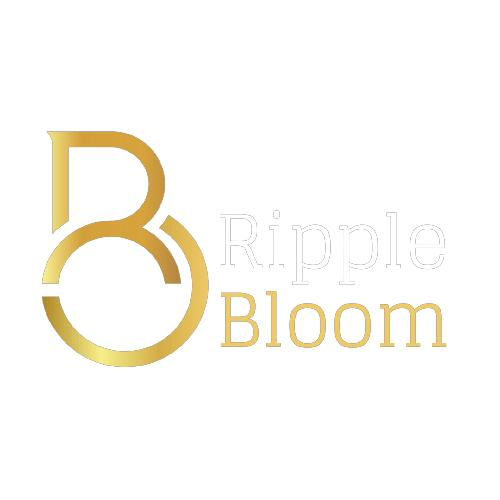Digital marketing is a realm of perpetual transformation, offering both the allure of innovation and the challenge of keeping pace. The surge in Google searches for “digital marketing trends” illustrates the keen interest in forecasting the future, though we tread lightly into clairvoyance. Nonetheless, we can readily scrutinize emerging trends, dissecting their potential impact. Below, we explore a curated selection of 12 influential trends projected to steer digital marketing in 2023.
1. Shaping the Future: Artificial Intelligence (AI)
While the full potential of artificial intelligence is yet to unfold, glimpses of its capabilities manifested in 2022. Noteworthy examples include DALL-E, an AI-driven tool crafting images based on textual cues, and ChatGPT, an advanced text generation solution with diverse applications. AI, as an OpenAI creation, is poised to revolutionize content creation, marketing strategy, and customer engagement, marking it as a flagship trend for 2023.
2. A Revamped Era of Influencer Marketing
Influencer marketing's landscape has evolved from straightforward promotion to a multidimensional sphere demanding authentic engagement and expertise. The days of mere follower count dictating influence are behind us. Becoming an influencer now entails cultivating engagement and expertise. To glean insights from industry leaders, consult Brand24's roster of top digital marketing influencers.
3. Unleashing Personalized Marketing
Inundated by a deluge of online advertisements, consumers demand tailored solutions to their problems. Generic approaches no longer suffice. Crafting messages that resonate and solving consumer pain points takes center stage. Social listening and conversational marketing elevate brands, as does leveraging LinkedIn groups and implementing personalized email campaigns.
4. Evolving Video Dynamics: Short-Form Content
The rise of TikTok unveiled the magnetic allure of short-form video content, reshaping attention spans. Successfully capturing user interest within seconds is paramount, even for non-viral brands. TikTok's reign sparked competitors like Instagram Reels, YouTube Shorts, and fleeting Twitter Fleets, cementing short-form video's influence on mobile-centric content.
5. Multi-Platform Mastery: Social Media Diversification
Facebook's former monopoly has faded, as the digital marketing realm embraces the multi-platform landscape. TikTok's ascendancy, particularly among Gen Z, signals the need to adapt swiftly to emerging platforms. Monitoring rising contenders like BeReal and Mastodon could be instrumental in remaining ahead of the curve.
6. LinkedIn: A Continuing Journey
LinkedIn continues to mature, captivating an expanding audience. Its growth reflects its significance, underscored by the 39% of users opting for the premium subscription. Crafting a marketing strategy for 2023 must involve a robust presence on LinkedIn, leveraging its potential for social selling.
7. SEO's Shift Toward Quality and Relevance
Google's evolving algorithms emphasize quality and relevance over keyword-stuffing. SEO tactics of yesteryears—spammy links and excessive keywords—are obsolete. A focus on comprehensive content that addresses users' queries is imperative. Zero-click searches, where featured snippets steal traffic, necessitate captivating content to retain user engagement.
8. Elevating Customer Experience in the Digital Realm
In the digital domain, customer experience reigns supreme. Reviews and opinions circulate rapidly, shaping perceptions. A fast, user-friendly website, transparent information dissemination, and conversational interfaces like chatbots are vital components of an enhanced customer experience strategy.
9. The Age of Ethics: Transparent Marketing
In an era spotlighting ethics and social responsibility, transparent marketing is pivotal. Honest communication, acknowledging when your brand isn't a fit, and cause-related marketing resonate deeply with conscious consumers. Sustainability emerges as a prevailing topic.
10. Embracing Inclusion: Diverse Marketing Messaging
Inclusivity is a driving force. Marketing strategies must address the needs of all consumers, including those with disabilities. Representation in advertisements is key; targeting specific identity groups has proven effective in resonating with audiences.
11. Google Analytics 4: A New Horizon
Google Analytics 4 is set to replace its predecessor on July 1, 2023. Marketers must acquaint themselves with this transition, considering its implications for data analysis and decision-making.
12. Generational Shift: Gen Z's Prominence
Generation Z is stepping into adulthood, heralding a shift in target demographics. Brands must understand Gen Z's distinct online shopping behaviors to tailor marketing strategies effectively.
Preparation in Motion: Embrace the Shifts
Preparation for the evolving landscape is paramount. While predicting the future remains uncertain, staying attuned to emerging trends ensures adaptability. The sweeping influence of AI, the recalibrated dynamics of influencer marketing, and the rising wave of personalized engagement stand as key domains to navigate. A dynamic, multi-platform presence, commitment to customer experience, ethical conduct, inclusivity, and a pulse on Google Analytics 4 and Gen Z are vital for seizing 2023's opportunities.
No tags for this post.



Leave a Reply